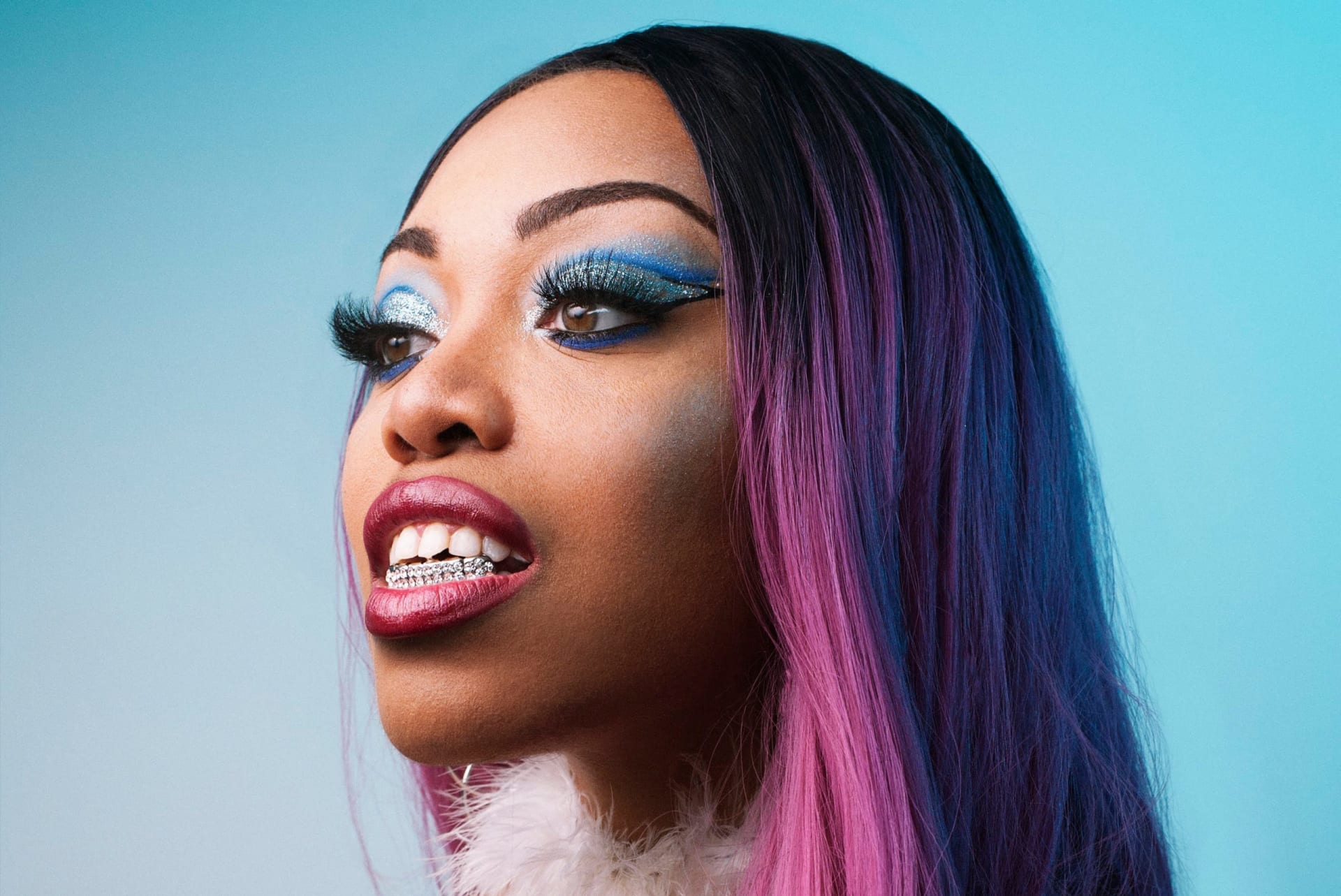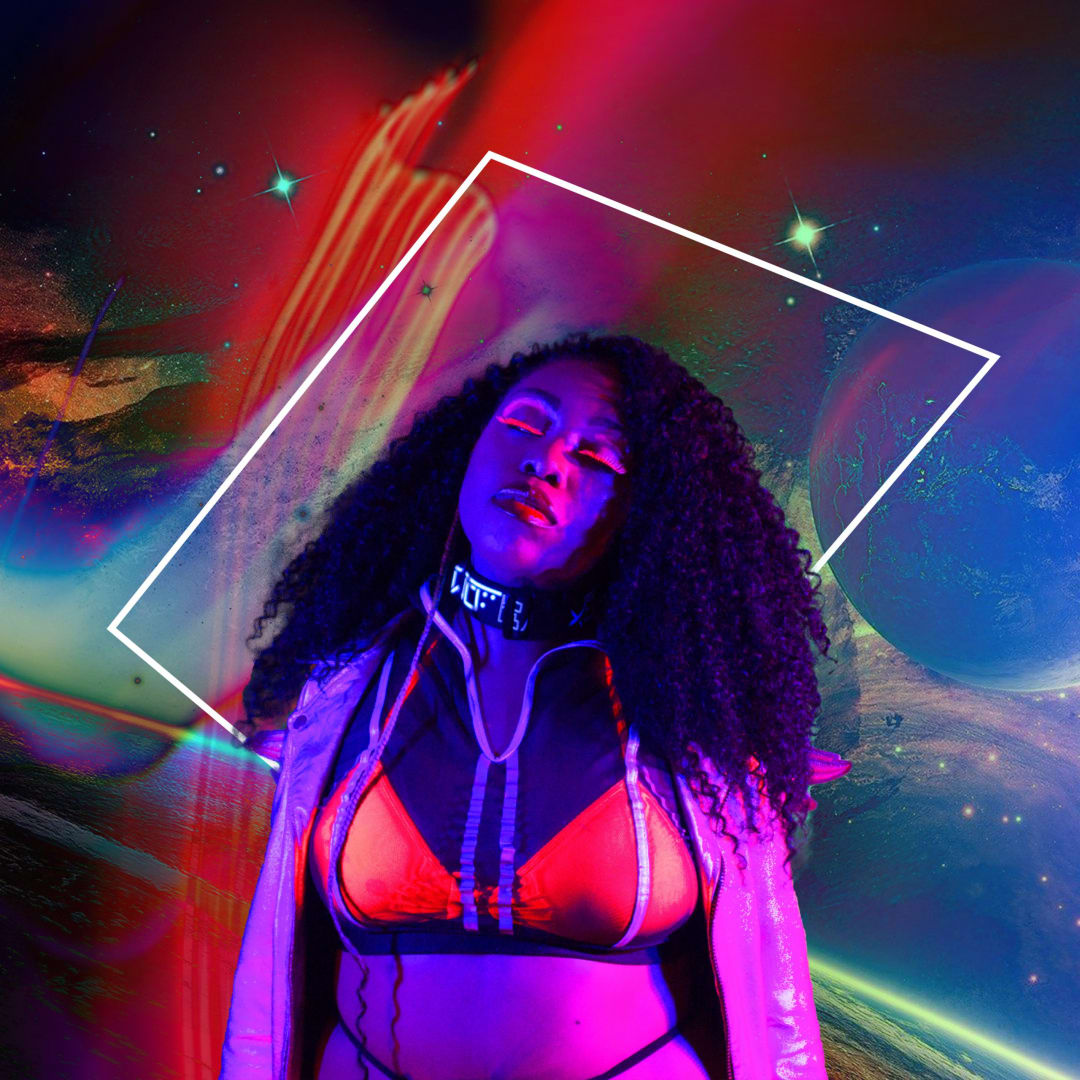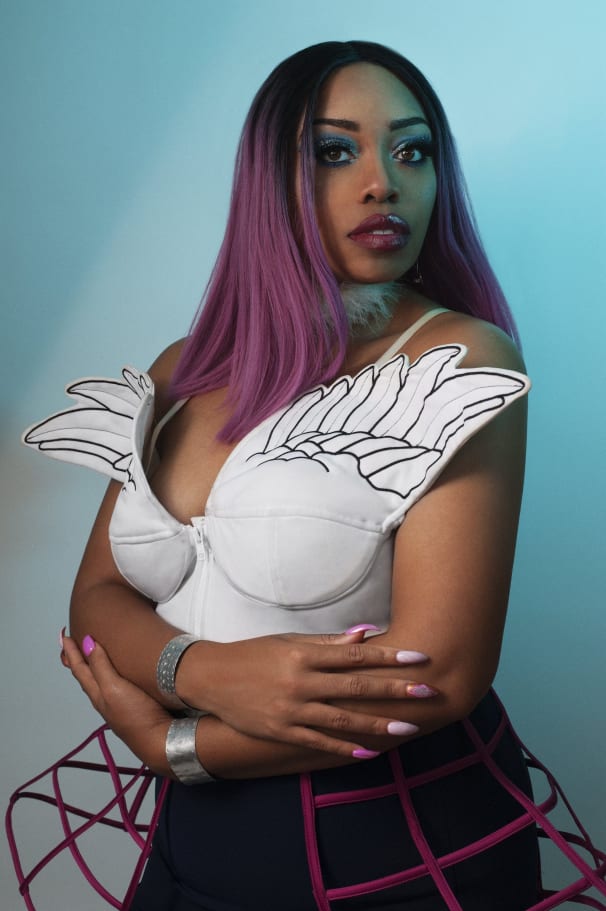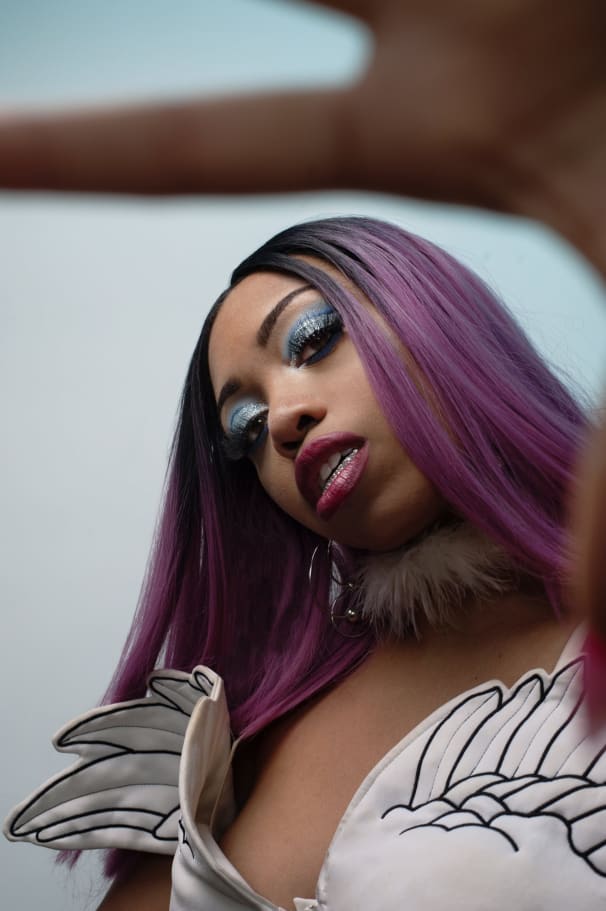
Suzi Analogue on Teenage Engineering’s New Initiative to Support Black Artistry
The Miami-based artist is one of the first fellows in the Swedish synth company’s new revenue-sharing plan.
At the beginning of July, Miami-based producer and singer-songwriter Suzi Analogue posted a series of collages to her Instagram in honor of what she described as “one of the biggest days of [her] life.” It had already been an impressively industrious time for the artist: Last month, she released a new EP, Su Casa, which she made in just a week to test the limits of a new synthesizer, and she’s been live streaming performances that she calls ZONECASTS to parallel the name of her mixtape series on her own tape-and-vinyl-centric label Never Normal Records. For one of the biggest days of her life, though, Analogue layered photographs of herself in her signature heart-shaped glasses with snippets of a New York Times story on the music industry’s long overdue reckoning with race. In one of the composite images, her pointy acrylic nails, which give off the same crystalline shimmer as the inside of a gemstone, peek out over a colorful, pocket-sized synthesizer.

Alongside techno pioneers Underground Resistance and Los Angeles-based artists VoltageCtrlR and Baseck, Analogue is one of the first fellows included in small Scandinavian company Teenage Engineering’s new initiative, which acknowledges the role that Black artists have played in popularizing their petite, accessible synthesizers. Starting September 1, at least 15 percent of the brand’s sales revenues (from certain links) will go directly to those four fellows. In the New York Times story announcing the new model, Teenage Engineering’s chief brand officer, Emmy Parker, estimated the artists’ share of revenues “could be anywhere from $100,000 a year to, in some cases, close to a million dollars a year.”
It’s an economic model that reflects the strong currents in the music industry pushing labels and major institutions to address past and present racial inequities. In addition to waiving fees on certain days over the past few months, Bandcamp donated their share of sales to the NAACP Legal Defense Fund on Juneteenth. Some publishing groups, like BMG Rights Management, have also taken to reviewing past contracts, as Black artists have historically ceded rights and royalties after signing bad-faith contracts. Just last month, for example, Larry Heard and Robert Owens issued a federal copyright infringement lawsuit against Trax Records for upwards of one million dollars in damages. In the mid-80s, without legal counsel, Heard signed away his share of copyrights to “Can You Feel It,” “Washing Machine,” and “Beyond the Clouds” to Trax for a fixed rate of $3,000. As the lawsuit acknowledges, it’s an “all-too familiar story of the early days of the music industry”—one that pivots on the exploitation of Black artists.
Analogue describes Teenage Engineering’s new plan as a “full-circle moment,” especially given the fact that she only got her first Teenage Engineering product, the popular OP-1, with the help of an artist’s discount. “I couldn’t afford it at full price,” Analogue says. “When I bought it, I was so happy. I was always putting it on Instagram. When I posted about [the Teenage Engineering partnership], a lot of people were like, ‘Oh, you were one of the first people I saw play with this thing in New York.’ I took it everywhere with me.” Soon after she got it, Analogue brought it to the first music production workshop that she hosted in Uganda, as she felt that the kids in the program would be especially interested in the compact little synth. It’s safe to say that she’s been actively promoting its use in every avenue of her career.


For a while, the OP-1 was the only synth that Analogue had (she still uses the first microphone she bought in 2005 with a refund check that she got from her college). “Artists can’t afford [synths]. When we get them with a discount, it’s either spoken or unspoken that [the companies] want us to share and promote their items. Then they make millions of dollars off of these instruments, and we still can’t afford them,” Analogue says. “Underground artists can’t even afford basic healthcare. We can hardly afford our rent at times. We’re living at the edge of poverty, and something’s just not matching up. The value isn’t being redistributed to the people that actually drive interest in these products.”
Analogue likens Teenage Engineering’s new model, which will attempt to directly address this inequality, to a familiar homespun practice. “I was recently on a stream with another artist, and they said their practice is like quilting. Quilting is so important to African American culture, because those who were brought here to be enslaved told stories with quilting patterns. I feel like that’s what I’ve been doing the last decade: quilting together my career,” Analogue says. “And that’s because I had scraps to work with as an independent artist. I just tried to make the most beautiful and comforting thing that I could with the scraps that I was given. Making electronic music as a Black woman in this country, people don’t really give you what you need. They give you what they think is good for you, or they don’t even ask, and you just have to take it, and this Teenage Engineering fellowship is me not taking anything. It’s me becoming resourced.”
Published July 17, 2020. Words by Rachel Hahn.
